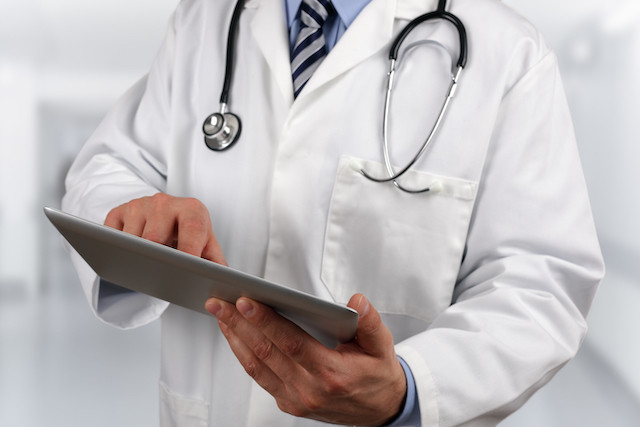After undergoing recent surgery, my expectation was to receive my full set of notes on discharge. This, however, is not common practice in Luxembourg. To obtain my notes, I had to contact the hospital administration, both via telephone and in writing. Not to mention chase the physician responsible in order to ensure that this would be followed up. This physician advised that, while this was not “common practice in Luxembourg”, given that I was insistent, I could have them.
In fact, this statement is false and is an example of “information blocking”. The promotion of transparency of care is a subject the healthcare sector in the US and UK has been arduously campaigning against for almost a decade. Luxembourg legislation stipulates that one can request to see or obtain a hard copy of one’s notes either verbally or orally.
Patients in the US have a legal right since 1996 to see their medical records on request, since the adoption of HIPAA legislation. In Luxembourg the RGPD (2016/679 (UE) details that all patients should be privy to such information. Indeed, improving access to patient notes facilitates shared decision-making, patient engagement and overall patients’ ownership of their health. Studies have shown little detrimental effects in engaging in such practice.
Mobile population
Luxembourg is host to populations in flux. With cross-border workers, frequent travellers and a plethora of expat populations, Luxembourg caters to an international patient set. This phenomenon adds a further example of why access to your medical records is imperative. Many living here will seek continuity of care abroad either partially (for subspecialist care) or when they leave the country. Hence it is crucial to be able to provide your medical team with as much information as possible.
Enhance patient understanding
Providing a patient with their medical notes not only enables the patient to gain a greater insight on their condition and their current treatment regime, but it also enhances patient empowerment. Educating patients forms part of the patient pathway and facilitates the course of disease management. It falls to physicians to encourage such practice.
To counter the argument that patients will rarely read their notes--the simple fact of knowing that their file is available on request increases their trust in both their physician and in the organisation that is providing their care. The role medical transparency plays in patient care is not to be underestimated.
Improve patient engagement
The era of patients blindly following orders is long gone. Patient 2.0 is born with information at their fingertips. They want to be told the why’s and how’s of their condition, and they expect a detailed explanation of their management plans in order to better participate in their treatment. The key word here being participate. Medicine has become a collaboration between doctor and patient, making the patient journey easier for all parties.
Patients are becoming increasingly aware of their health status with the advent of wearable devices and are investing earlier in life in preventative medicine. A growing number of patients want to play a more active role in the management of their disease and are no longer content to sit by the sidelines. Human nature dictates that the more you know about your condition--risks and side effects included--the more likely you are to understand why you should take a particular treatment. Providing medical records only enhances this partnership and the likelihood of adherence to treatment regimens. By being included in their treatment, the patient feels more comfortable in adhering to treatment, divulging the reason certain treatments didn’t benefit them or openly discussing any side effects they experienced.
Contributing to safe practice
Patients want to receive the best care available and will take the time to help maintain medical record-keeping accuracy. Where possible they will spot and highlight any errors in their medical notes. Furthermore, studies show that up to a quarter of errors picked up by patients in their medical history were considered clinically relevant by doctors.
When receiving bad news, the shock and stress of this information means that patients will remember almost less than 50% of what they are told by their doctor in the moment. Depending on the level of grief the amount recalled is negatively correlated. Part of good practice is to provide patient with written information so that at a later point in time they have their records to refer to, allowing them to process their illness with their families and discuss their queries once they have fully processed the information.
Medical records should be complete, dated and they should include any signed consent forms for procedures undergone along with any results of investigations. This may seem the very least of what one should expect to obtain on request; but sadly, a large number of the population is unaware (often misinformed) that they are entitled to a copy of their files. While most information is accessible to patients, it is important to note that some exceptions do exist where the healthcare professional feels sharing certain pieces of sensitive information could be detrimental to the patient’s condition. Patient records provide a written account of the patient’s medical journey, an insight into their condition and a means to share medical information accurately amongst colleagues within the team.
That team, of course, includes the patient.
Dr Lilani Abeywickrama is a trained ophthalmologist. Her main interest is advocating for health, technology and medical affairs. She currently works in the field of health and medical management in Luxembourg.
